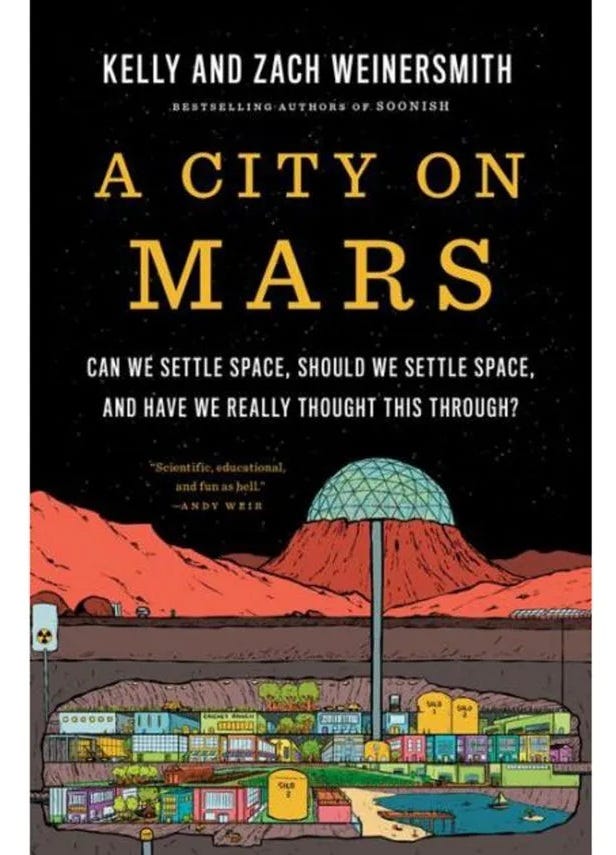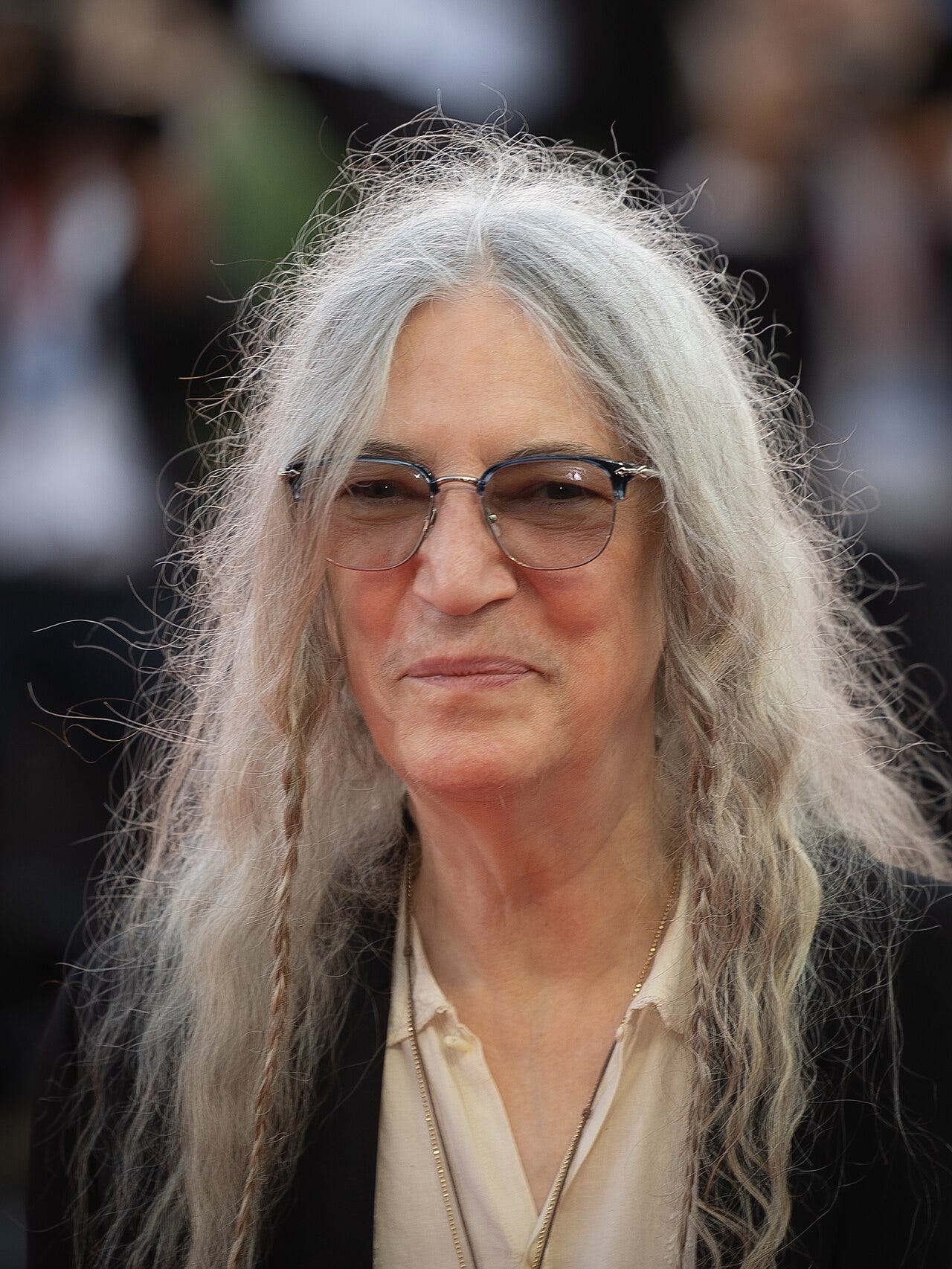Newsletter No 27- A Woman, Her Hair, and the Liberation of Growing Older
Weekly thoughts, readings, musings and links from Athena Drakou, best known as The Climate Historian.
It all started when I decided to let my hair go grey. A few years ago, standing in front of my bathroom mirror - dye in one hand and a sinking feeling in my chest. For years, I’d been fighting a battle against my roots—every six weeks, like clockwork. But that day, something shifted. I looked at the box of dye and thought, What if I just... stopped?
And so, I did.
….
Being an older woman in the 21st century is complicated. We’re bombarded with mixed messages. On the one hand, we are surrounded by images of supermodels and glamorous movie stars photoshopped to inhuman perfection. On the other, the number of ads featuring women who epitomise power and strength has been increased. All of them tell us how we should look and what we should do to maintain our youth, radiance and beauty. We are conditioned to feel that ageing is a bad thing. We’re told to “embrace our age” but not to look it. We’re expected to be wise but invisible, experienced but unthreatening. And frankly? I’m done playing along.
Read the whole article on The Heretic Witch
This week on The Climate Historian
Today, on the Climate Histories we go back in time and discover the origins of the science of climate change
It all started more than a century ago, in 1896, when the Swedish scientist Svante Arrhenius published a paper introducing the very first model exploring how what we now call carbon dioxide—then referred to as carbonic acid—could influence the Earth's surface temperature.
It was a pioneering idea that would lay the foundation for modern climate science.
Read the article here.
The Climate Historian on YouTube
You can now watch and listen to Athena telling the story of the origins of climate change
Suing the Planet
Exxon Mobil's Plastic Promises and Legal Battles
In a stunning display of corporate audacity, ExxonMobil has filed a lawsuit against California Attorney General Rob Bonta and environmental groups over attacks on recycling efforts. The fossil fuels corporation is “accusing them of defaming and disparaging the oil giant's advanced plastics recycling initiatives.”
These tactics are indeed nothing new. Since the 1970s, big fossil fuel corporations, like ExxonMobil, Shell, and BP, have been involved in long-running deception campaigns to downplay the impact of fossil fuels on climate change. They have financed research and public relations campaigns to cast doubt on the science of climate change and shift blame from fossil fuel industries to consumers.
Read the article here
Climate News
The Hottest Year
Earth recorded its hottest year ever in 2024, with such a big jump that the planet temporarily passed a major climate threshold, several weather monitoring agencies announced Friday.
Last year's global average temperature easily passed 2023's record heat and kept pushing even higher. It surpassed the long-term warming limit of 1.5 degrees Celsius (2.7 degrees Fahrenheit ) since the late 1800s that was called for by the 2015 Paris climate pact, according to the European Commission's Copernicus Climate Service. (Associated Press by Seth Borenstein)
Follow the Money
The fossil fuel industry spent $219 million to influence the 2024 U.S. elections, mostly (88%) supporting Republicans.This included $26 million directly to candidates and $151 million through PACs and outside groups. This flood of money wasn’t just about winning votes; it was about securing policies favorable to oil and gas interests, stalling climate action, and protecting profits. Enabled by the Citizens United ruling, corporate spending has skyrocketed, shaping policies to protect fossil fuel interests. Transparency tools like Open Secrets reveal this web of influence, urging voters to hold leaders accountable. (Climate Connections)
Book of the Week: A City on Mars by Kelly and Zach Weinersmith
Are you one of these people who fantasise of space-age utopias, where humans roam the red plains of Mars in futuristic bubbles, while enjoying their morning coffee in the Martian sunrise. Or perhaps you’re grounded, skeptical, and not completely convinced by the tweets of Elon Musk, and you prefer to have your morning coffee in your neighbourhood café. Whichever camp you fall into, A City on Mars challenge you to ponder what it would take to bring humanity to Mars and whether we’re ready—or even willing—to make that leap.
Read more: Are We Ready to Leave Earth Behind?
Image of the Week: A Living Rock Legend
Patti Smith-with her white, untamed hair, remarkable both for its colour and its freedom, she goes on practicing her art without the least concern for looking pretty, restrained or delicate, as it is generally expected of women. In 2008, the New York Times magazine could not help asking this living legend of rock music why she never uses conditioner – a question, perhaps, intended to domesticate the defiant spirit of her unrestrained hair.
Image: Patti Smith at the 81st Venice International Film Festival, in 2024. Source: Wikipedia
Quote of the Week
“You have in your hands a piece of ice that is a million years old. Sometimes you see ash layers coming from volcanic eruptions. You see the tiny bubbles inside, some bubbles of air that our ancestors breathed a million years ago.”
Polar scientist Carlo Barbante describes the feeling of holding what is probably the world's oldest ice — a section of a 2.8-kilometre-long ice core from Antarctica that records environmental conditions up to 1.2 million years ago. (BBC)
This article is free to read, but if you found it interesting and would like to support my research and writing, please consider making a small donation at my Buy Me A Coffee page below:
The Climate Historian has also a Discord and a Patreon. Post about anything you want, ask questions, whatever. 90% of the content is free, but for the remaining 10% you can subscribe here.






